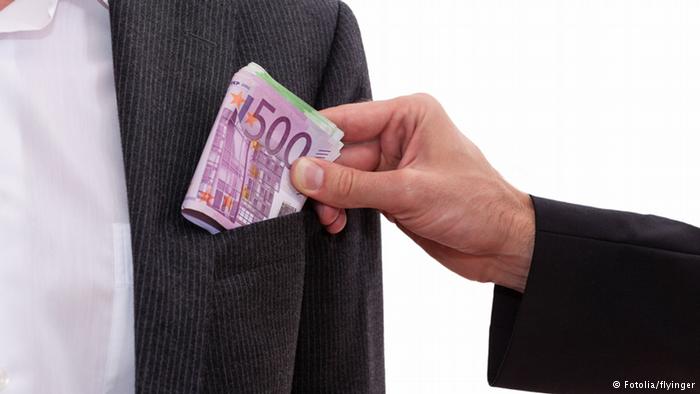Lobby groups` influence `damaging democracy`

Michael Janssen: GRECO`s reports acknowledge that Germany occupies one of the top slots internationally in terms of fighting corruption, and has solid bases at its disposal for the prosecution and prevention of corruption. In the public realm, too, corruption is perceived as being less widespread and lower than the EU average. In its previous reports, GRECO established that corruption increasingly occurred and was observed in Germany from the early 1990s onwards, and that the authorities responded positively to this challenge. Incidentally, in other countries Germany has a reputation for taking robust action against offenses of corruption.
What are Germany`s particular weak spots?
In 2009 GRECO noted some weaknesses in the transparency and control of the financing of political parties, as well as a series of liability loopholes in the criminal laws dealing with corruption. It therefore recommended, among other things, rectifying the deficiencies in German corruption laws and in the limited criminal liability for bribing members of parliament.
What exactly is the problem with party financing?
The Political Parties Act contains detailed regulations for the political parties` accounting, but it neglects the specific disclosure of election financing. This is not very compatible with international standards, which were set according to recommendations from the Council of Europe in particular. Among other things, GRECO therefore recommended introducing a system for the early publication of statements of accounts for election campaigns, and improving transparency regarding direct donations to members of parliament and election candidates. It also called for greater strengthening of the resources at the disposal of the president of the lower house of parliament for the monitoring of party financing. In addition, the practice of sponsoring, which is increasingly coming into play, needs to be examined and should ideally acquire a clear legal framework.
One point concerns the influence of lobby groups on the legislative process. Can you name examples of this and say where the border lies between legitimate and illegitimate exertion of influence by interest groups?
Up until now we lack precise international standards for the demarcation of the unfair exertion of influence on the legislative process by unproblematic lobbying. It`s certainly particularly dubious when people who represent particular interest groups are able to exert one-sided influence on the legislative work in ministries and in parliament without this being disclosed and a level playing field guaranteed for all those involved. We can assume that practices like these are very much on the increase internationally - and that democracy is being damaged accordingly. In addition, this kind of exertion of influence should be made a punishable offense if services are rendered in return. The preconditions for this should now be created in Germany as well, with the planned new regulations concerning the bribery of members of parliament.
How forcefully has the German government reacted to your criticisms so far?
Germany is basically a very reliable member country, but the reforms we called for in the fields of criminal law on corruption and party financing have been a long time coming. It`s therefore all the more gratifying that a draft law is now on the table that will set new regulations concerning the bribery of members of parliament and bribery in the business sector. In doing this Germany is complying with one of GRECO`s core demands. It`s a clear sign that the international guidelines are being taken seriously.
Michael Janssen is one of the experts in the Council of Europe`s Group of States Against Corruption (GRECO). These experts from the 47 member states regularly publish reports on the situation in individual countries. They advise governments on anti-corruption measures and check to what extent the governments abide by them.















































